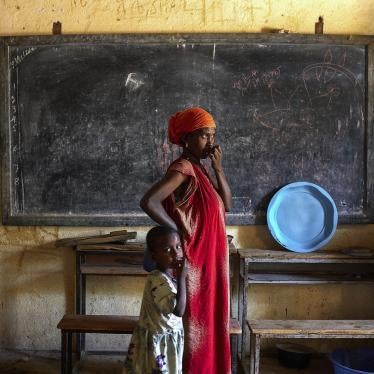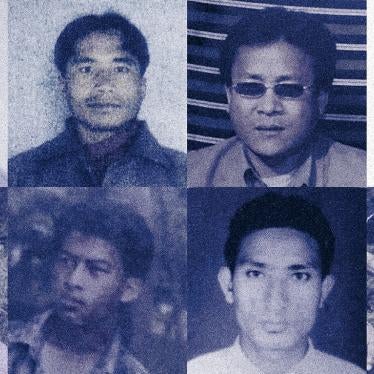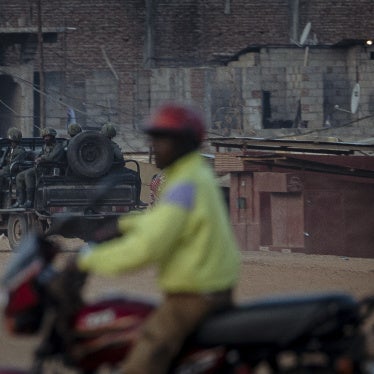Thousands of people will be in Vienna this week for the 18th International Aids Conference. The theme is human rights, and the focus will be on eastern Europe. That's fitting, because poor health policies and on-going human rights abuses continue to fuel an HIV/Aids epidemic across thousands of miles, from Vladivostok to Lviv in Ukraine.
Every year for the last 20 years, HIV has claimed thousands of lives in countries of the former Soviet Union, largely transmitted by drug injection.
Most of these deaths could have been prevented: needle exchange and methadone programmes have dramatically reduced transmission elsewhere in the world. But in most countries in this region the overwhelming evidence that these approaches work has been largely ignored, with devastating consequences. The region now hosts the worst HIV epidemic outside sub-Saharan Africa and some of the fastest growing epidemics in the world.
The Russian government is at the root of the crisis. It rejects methadone treatment as "substituting one drug for another". It has banned such treatment domestically, harassed advocates in Russia, and used its influence in the region to prevent neighbouring countries introducing methadone programmes. Under international pressure, some countries have small pilot projects - but most are totally inadequate.
Ukraine has been one of the few bright spots in this bleak picture. When the 2004 Orange revolution swept Viktor Yushchenko to power, Ukraine faced the worst HIV epidemic in Europe, with more than 1% of the population already infected, many new infections each year, and an ever-increasing number of Aids deaths. To his credit, Yushchenko recognised the urgency of the need for a decisive response, both with antiretroviral treatment for people living with HIV and with stronger prevention efforts.
Ukraine began using buprenorphine, similar to methadone, that year, and later added methadone itself. During the next five years, it set up the biggest and most rapidly growing substitution treatment programme of any country of the former Soviet Union (except the Baltic States, which had joined the European Union), putting more than 5,000 people on treatment. Expansion to 20,000 patients is planned by the end of 2013. While many more of Ukraine's estimated 290,000 injection drug users remain without substitution treatment, Ukraine's progress has been unparalleled in the region.
But its achievements are under threat. Coincidentally or not, the ascendance of a new, Russia-leaning Ukrainian president has corresponded with an increasing number of law enforcement attacks on substitution treatment programmes. Aids activists say police have raided drug treatment clinics, interrogated, fingerprinted and photographed patients, confiscated medical records and medications, and detained medical personnel in cities across the country in the last six months.
It's hard to imagine: effective and life-saving medicine on the World Health Organisation's essential medicines list is being treated as suspect and criminal. The raids have resulted in interruptions in treatment, and two doctors are facing drug trafficking charges. One of them is in pre-trial detention.
Police claim that these raids and arrests are part of legitimate efforts to enforce Ukraine's drug regulations and prevent misuse of these medications. But many of the raids appear to have been conducted without probable cause and in violation of Ukraine's rules for police operations.
The drug trafficking charges - punishable by up to 10 years in prison - against one of the doctors appear to be based on little more than clerical errors or omissions. Police claim that the doctor's clinic failed to inform drug regulators of a change of address, making its licence invalid, and that the doctor neglected to follow some of Ukraine's extremely onerous prescription requirements.
But police have provided no evidence of misuse of medications, and the people who "illegally" received the medications were all registered with the clinic. Most are still getting the medicine there.
Is this wave of harassment an effort by the new administration to discredit and then close drug substitution treatment programmes? Or are these just unrelated acts of harassment by overzealous law enforcement officials? Will Ukraine continue to be a leader in the battle against HIV, or will it follow Russia's ill-guided lead, even if the cost is thousands of lives?
In fact, there is a broader question: will the president lead Ukraine toward the EU, as he has said is his intention, or is he turning eastward, as some of his first steps in office seem to suggest?
Viktor Yanukovych, Ukraine's president, has remained silent on the topic of HIV prevention and treatment. But the nation can ill afford this silence. It still has Europe's highest HIV rate, so slowing or closing down this treatment programme would have disastrous consequences. As Aids experts gather in Vienna this week, and the world's attention turns to HIV epidemics in eastern Europe, it is time for Ukraine's president to provide some answers.








